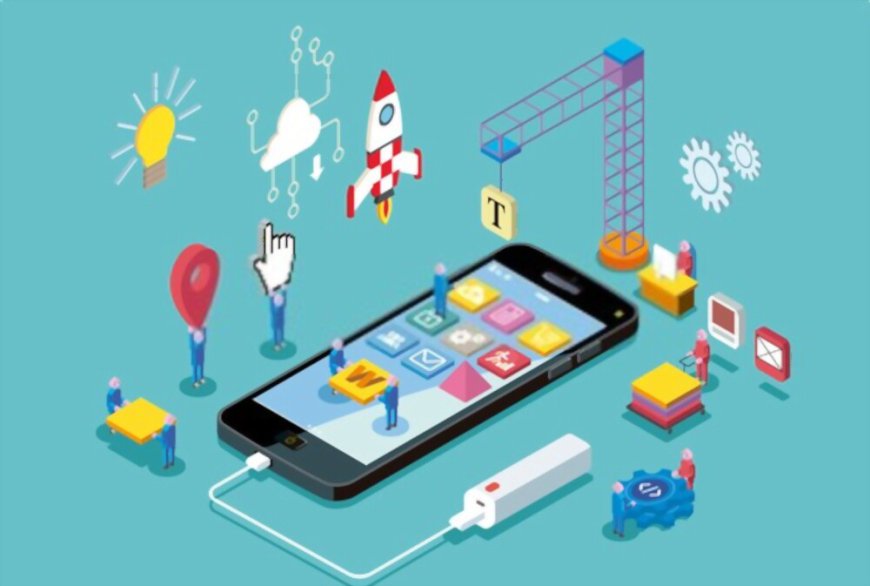The Impact of AI on Mobile App Development Services
Learn about the impact of AI on mobile app development services. Uncover how AI enhances app functionality, user experience, and development efficiency.

Artificial Intelligence, or AI, is a technology that is changing the world. We see AI in many parts of our daily lives, from voice assistants like Siri and Alexa to recommendations on Netflix and YouTube. AI makes things smarter and more efficient. In the world of mobile app development, AI is also making a big impact. It helps developers create apps that are smarter and more useful for users. In this blog, we will explore how AI is influencing mobile app development services and why it is important.
The use of mobile apps is growing rapidly. According to Statista, there were 218 billion mobile app downloads worldwide in 2020. This number is expected to reach 258 billion by 2022. With such a huge number of apps being downloaded and used, developers need to find ways to make their apps stand out. AI offers many tools and techniques that can help create better and more engaging apps.
Different Ways AI is Impacting Mobile App Development Services
Enhancing User Experience
One of the most significant impacts of AI on mobile app development is the enhancement of user experience. AI helps create personalized experiences for users. For example, AI can analyze user behavior and preferences to recommend content or products that they might like. This makes the app more engaging and useful for the user.
Examples:
-
Spotify: AI is used to recommend songs and playlists based on the user's listening history.
-
Netflix: AI recommends movies and TV shows based on what the user has watched before.
Improving App Performance
AI can also help improve the performance of mobile apps. By analyzing data and patterns, AI can identify issues and optimize the app's performance. This means faster load times, smoother navigation, and a better overall experience for the user.
Examples:
-
Google Photos: AI is used to organize and enhance photos, making the app faster and more efficient.
-
Instagram: AI helps in filtering out spam and inappropriate content, improving the user experience.
Automating Tasks
Another way AI impacts mobile app development is through automation. AI can automate repetitive tasks, saving time and effort for developers. This allows them to focus on more important aspects of the app.
Examples:
-
Chatbots: AI-powered chatbots can handle customer service inquiries, providing quick and efficient support.
-
Email Automation: Apps like Gmail use AI to categorize emails and suggest responses, making email management easier.
Enhancing Security
Security is a critical aspect of mobile app development. AI can help improve the security of apps by detecting and preventing threats. AI algorithms can analyze patterns and identify suspicious activities, protecting the app and its users.
Examples:
-
Face Recognition: AI is used in face recognition technology to unlock phones securely.
-
Fraud Detection: Apps like PayPal use AI to detect and prevent fraudulent transactions.
Better Decision Making
AI can help developers make better decisions by providing insights and predictions based on data. This helps in creating more effective and efficient apps.
Examples:
-
Analytics Tools: AI-powered analytics tools can provide insights into user behavior, helping developers understand how users interact with the app and what improvements can be made.
-
A/B Testing: AI can automate A/B testing, allowing developers to test different versions of the app and choose the best one.
Voice and Speech Recognition
Voice and speech recognition are becoming more common in mobile apps. AI powers these features, allowing users to interact with the app using their voice.
Examples:
-
Siri: Apple’s voice assistant, Siri, uses AI to understand and respond to user commands.
-
Google Assistant: Google’s voice assistant helps users with tasks like setting reminders, sending messages, and more.
Image and Video Recognition
AI can analyze and recognize images and videos, adding useful features to mobile apps.
Examples:
-
Google Lens: This app uses AI to recognize objects, text, and landmarks in photos.
-
Facebook: AI is used to tag people in photos and recommend friends.
Personalized Content
AI helps deliver personalized content to users. This makes the app more relevant and engaging for each user.
Examples:
-
Amazon: AI recommends products based on the user’s browsing and purchase history.
-
YouTube: AI suggests videos based on the user’s watch history.
Predictive Analysis
AI can predict user behavior and preferences, helping developers create apps that meet user needs.
Examples:
-
Fitness Apps: AI can predict user activity levels and recommend workouts.
-
Weather Apps: AI can provide accurate weather predictions based on data analysis.
Enhancing Creativity
AI can also enhance creativity in app development. It can generate ideas, suggest designs, and even create content.
Examples:
-
Design Tools: AI-powered design tools can suggest layouts and color schemes for apps.
-
Content Creation: AI can generate text, images, and videos for use in apps.
Conclusion
AI is making a significant impact on mobile app development services. It helps create smarter, more efficient, and more engaging apps. By enhancing user experience, improving app performance, automating tasks, enhancing security, and providing better decision-making tools, AI is revolutionizing the way apps are developed. As the use of mobile apps continues to grow, the role of AI in app development will become even more important. Developers who embrace AI technologies will be able to create innovative and successful apps that meet the needs of users in today’s digital world.

 mtoaguk
mtoaguk